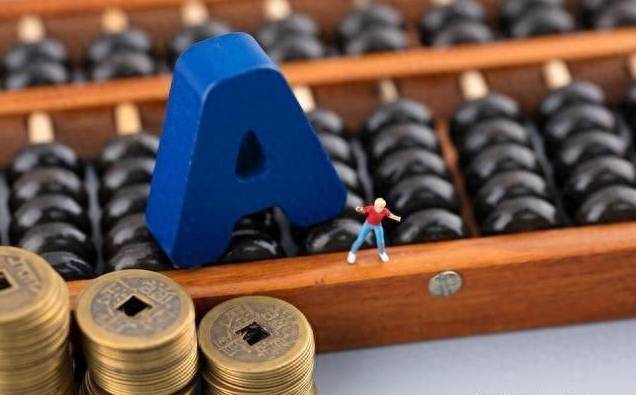-- Foreword --
Businesses nowadays are racking their brains to make money, with all sorts of arbitrary charges emerging endlessly.
Items that were previously free are now starting to cost money.
Especially these five "implicit consumption" items, which make consumers suffer, seem to be only a few yuan of consumption, but accumulate over time, and every year you have to spend thousands of yuan for no reason.
What exactly is going on?
-- Tableware Becomes a Luxury --
In recent years, the issue of additional charges in the catering industry has become increasingly prominent, attracting widespread attention.
From free tableware to paid tableware, from a few cents of packaging fees to several yuan now, these changes reflect the trend of the industry and the transformation of consumer psychology.The evolution of tableware fees is a classic example.
In the past, tableware provided by restaurants was free, but with the increase in cost pressures and the rise in awareness of hygiene, more and more restaurants began to charge for tableware.
Prices have risen from just a few cents to several yuan, and some high-end restaurants even offer exquisite disposable tableware, with higher fees.
This change has improved hygiene, but it has also caused dissatisfaction among consumers.
After all, in the eyes of many people, tableware should be part of the basic dining experience and should not be charged additionally.
The issue of packaging fees is even more complicated. With the rise of the takeaway industry, packaging fees have become a new source of income for the catering industry.
However, many consumers find that packaging fees are often much higher than the actual cost.Some restaurants even enforce the use of takeout containers, even if customers do not need them.
This not only increases the burden on consumers but also leads to resource waste.
More worryingly, cheap takeout containers may pose safety hazards.
In addition to this, there are some hidden extra charges that deserve attention.
For example, charges for paper towels, service fees, etc., which are often not clearly marked on the menu, causing trouble for consumers.
Especially the service fees introduced by high-end restaurants, although they claim to improve the quality of service, they may affect the dining experience and make consumers feel uncomfortable.
--- TV Membership ---In the era of information explosion, watching TV remains the first choice for many people to relax.
However, with the development of the internet, traditional television and online platforms have successively introduced membership systems, which initially seemed to provide viewers with more options.
However, the membership system is becoming increasingly complex, with different programs requiring different membership qualifications, and sometimes even multiple memberships are needed to watch.
This puts a lot of pressure on many viewers. What's worse, even after becoming a member, the problem of advertisements still exists.
In addition to the membership fee, there are various hidden charges, such as some platforms requiring additional fees to unlock certain functions, or requiring additional storage space to save favorite programs.
These seemingly insignificant small expenses, accumulated over time, also constitute a considerable expenditure.
For the elderly, this complex charging model is even more challenging.
Many seniors are accustomed to the traditional way of watching TV, and are often at a loss when facing various apps and membership systems, with some even giving up the simple entertainment activity of watching TV.It is worth noting that this membership system has expanded to other fields, such as some theme parks that have also introduced VIP services.
This trend has sparked social discussions, with many people believing that it exacerbates social inequality.
Additionally, the rise of live broadcasting programs and their charging models are also worth paying attention to.
Internet celebrities earn huge income through live broadcasting, but it also brings problems.
Some viewers, in order to win the favor of the host, do not hesitate to spend a lot of money, even affecting their daily life.
-- Nesting doll charging in scenic areas --
The phenomenon of arbitrary charging in scenic areas has also attracted the attention of many people. Many tourists reflect that, in addition to the high ticket prices, there are also various miscellaneous additional charges within the scenic area.Among them, the most common issue is the "scene within a scene" charge, where tourists purchase admission tickets to the scenic area, only to find out that many of the essence spots require additional payment.
For example, in a famous landscape scenic area, tourists spend 200 yuan on admission tickets, only to find out that they have to pay an additional 80 yuan to take the cable car, and another 60 yuan for a boat ride.
In addition, the prices of goods and services in the scenic area are generally high. A bottle of mineral water that only costs 3 yuan outside may be sold for 10 yuan inside the scenic area.
The prices of dishes in the scenic area restaurants are even more astonishing, with a plate of ordinary green vegetables possibly being sold for fifty to sixty yuan.
Some tourists helplessly say, "It feels like my wallet has been 'robbed' by the scenic area."
What's even more ridiculous is that some basic facilities that should be free are also charged.
Some scenic areas even charge a "convenience fee" for using the restroom, and even drinking hot water has to be paid for.These practices not only increase the economic burden on tourists, but also run counter to the essence of service.
—KTV Beverages "Gilded Edge"—
KTV was once synonymous with nightlife, but its appeal has gradually weakened in recent years.
The situation is not only due to changes in the external environment, but also the problems within the KTV industry itself cannot be ignored.
The most criticized aspect is the charging model.
Firstly, the prices of beverages are excessively high. In KTVs, the price of ordinary drinks is often more than twice that of supermarkets, and the prices of alcoholic beverages are even more astonishing.
A beer that costs tens of yuan outside may be sold for hundreds in a KTV. This obviously unreasonable pricing makes many people feel cheated.In addition to the inflated prices, the volume and alcohol content of beverages often become the "tricks" of KTVs.
Some KTVs use specially made glasses that look big but are actually small, or add a large amount of ice to the beverages, reducing the actual consumption in disguise.
These practices may increase revenue in the short term, but in the long run, they damage customer trust.
What is even more annoying is that many KTVs also prohibit customers from bringing their own beverages.
This overbearing clause not only limits customer choices but also forces them to accept high-priced beverages.
KTVs claim it is for food safety, but in the eyes of customers, it is forced consumption.
In addition, the cost of private rooms and minimum consumption standards also put a lot of pressure on people.
Some KTVs charge differently based on the time and size of the private room, coupled with the minimum consumption of hundreds or even thousands, which makes many people hesitate.If these issues are not improved, the future of the KTV industry may become increasingly difficult.
—Plastic Bag Fee Policy—
Recently, the supermarket plastic bag fee policy has sparked heated discussions.
From free to charged, this shift reflects the society's emphasis on environmental protection, but the effect is not satisfactory.
Looking back at the evolution of the policy, we see a gradual process.
Initially, supermarkets provided plastic bags for free to attract customers. As environmental awareness increased, some supermarkets began to charge a symbolic fee.
Now, the price of shopping bags has risen to one or two yuan, reflecting the balance between environmental protection and commercial interests.However, the actual effect is not ideal. Although many consumers understand the original intention of the policy, they still choose to buy plastic bags.
Some people think the price is acceptable, while others believe that plastic bags have other uses, such as serving as trash bags.
More importantly, environmental issues still exist. Despite some people starting to use eco-friendly bags, the extensive use of plastic bags still has a serious impact on the environment.
Marine pollution and soil degradation have not been effectively alleviated.
This indicates that relying solely on charging policies is not enough; more comprehensive environmental measures and public education are also needed.
——Conclusion——
In this era of rapid development of the internet, the phenomenon of arbitrary charges is endless, which has seriously affected consumer rights and market order.
Faced with this complex issue, it requires the joint efforts of the government, businesses, and consumers.In the future, we look forward to all parties strengthening communication and collaboration to build a more fair and transparent market environment.
Consumers should remain rational, stay alert, and guard against various hidden consumer traps.
Businesses should focus on the customer, pay attention to long-term development and brand maintenance.
Only with the joint efforts of all parties can we establish a mutually beneficial and win-win positive ecology, and promote the healthy development of the whole society.





























Join the Discussion